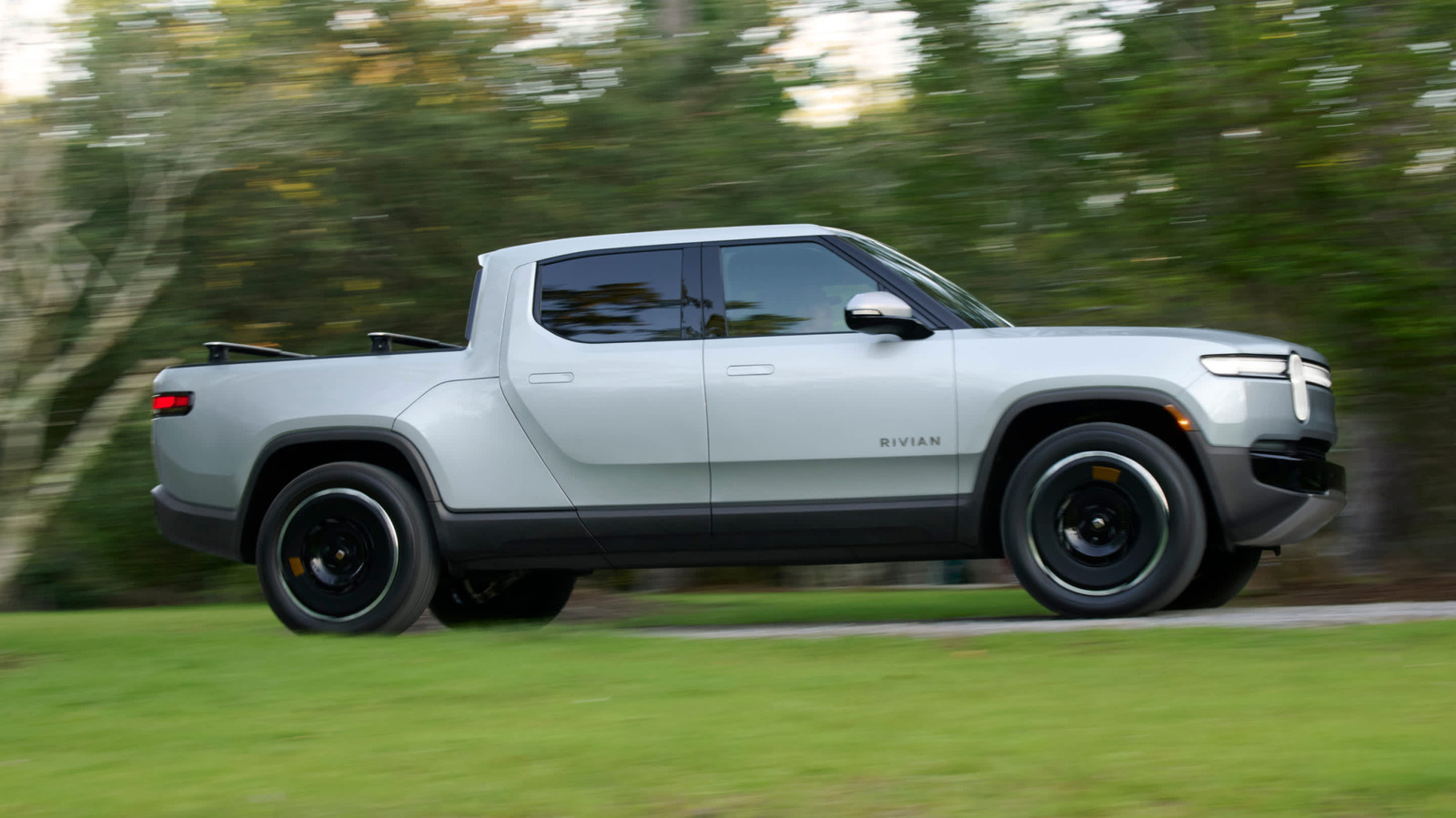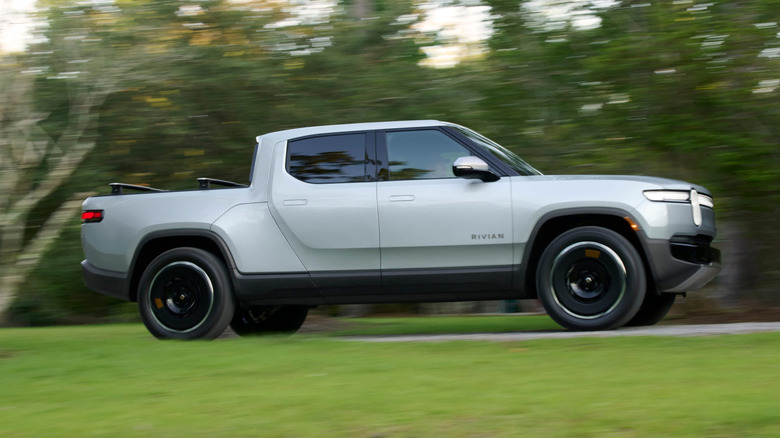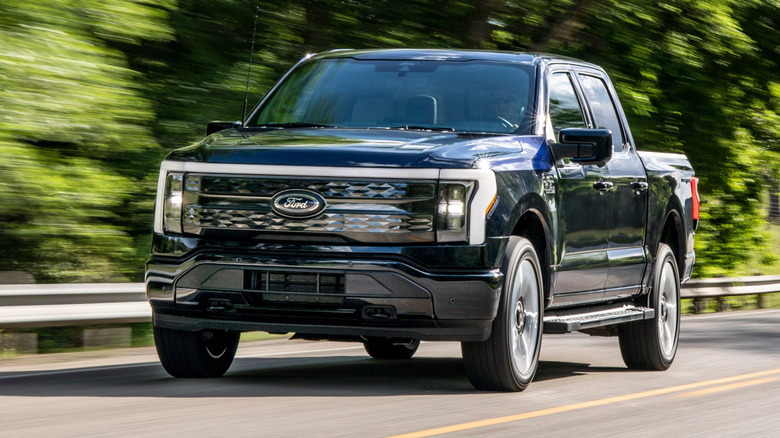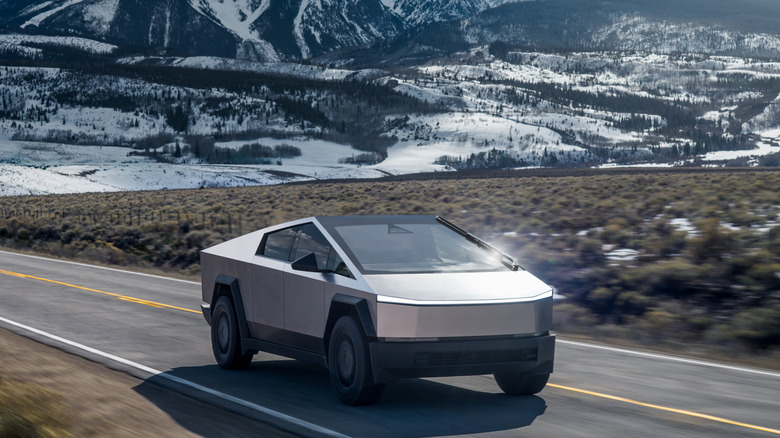Rivian is at a critical moment in its history, with its R2 SUV hitting the market next year. Starting at $45,000, the R2 is supposed to carry Rivian into its next stage, but meanwhile the company is still selling the R1T pickup truck and thus far in 2025, sales haven’t been very impressive. In fact, according to InsideEVs (citing Cox Automotive data), the “R1T is currently the worst-selling electric pickup in America.”
Rivian sold 2,378 pickups in the third quarter, and on paper that number looks good, as it’s up about 13% from the same period in 2024. Year-to-date, however, the R1T has seen a sales collapse, down more than 32% from last year, with 2025 sales of 5,857 units versus 2024’s January-September total of 8,673. (The R1S SUV strongly outsells its pickup sibling.)
From InsideEVs’ perspective, Rivian is a victim of a U.S. market that has soured on pickups powered by electrons:
[M]ost of the battery-powered trucks on sale today in the U.S. have increased their sales numbers from July through September. At the same time…figures show Americans clearly aren’t as interested in electric pickups as they are in gas-powered ones.
Rivian’s R1T is in last place
In fact, only the R1T and the Tesla Cybertruck have shown big YTD sales declines in 2025. Ford saw its market-leading F-150 Lightning replicate 2024’s pace (up 1%), while GM witnessed the GMC Hummer EV, as well as the Chevy Silverado EV, post hefty increases.
The F-150 Lighting is leading the 2025 sales race by a wide margin, moving 23,024 vehicles to second-place Tesla’s 16,097 Cybertrucks. The GMC Hummer pickup/SUV combo came in at 13,233, and the Silverado EV notched 9,379. 6,147 of the GMC Sierra EV have been sold, beating out the last-place R1T by a few hundred units.
The R1T was updated for 2025, and since its introduction the pickup has received generally positive reviews and has built a devoted ownership base. The sales slide has occurred in the context of some turmoil for Rivian: the company has downgraded its deliveries guidance for the year amid ongoing supply chain issues. The company is also gearing up to produce the forthcoming R2 at its only plant, located in Illinois. It broke ground for a new factory in Georgia last month, but that facility won’t come online until 2028.
Electric pickups are still a niche
In terms of the entire pickup market in the U.S., the Ford F-Series posted 620,580 in total sales through September. The F-150 Lightning’s performance has been notable, but the vast majority of trucks that Ford is selling continue to run on gas.
This is also true for the other companies that are major players in pickups. The disparity between gas-powered pickups and their electric counterparts is indicative of an EV market that hasn’t entirely stalled but that, for trucks, is beginning to look niche rather than transformative. The challenge of course is figuring out how to make money off these vehicles: Rivian has been losing over $30,000 per unit.
The end of the $7,500 federal EV credit is just going to make matters worse, as automakers will have to discount their electric pickups to sustain sales momentum. In this environment, it’s unclear what Rivian should do. The R1T is expensive and could be structurally unprofitable; phasing down production in favor of the R2 to bridge the gap between now and the Georgia plant becoming operational might be the best business plan, but that would mean sidelining the company’s flagship.
Rivian might not have a choice. Ford and GM have predictably surged ahead with their electric pickups – and Cybertruck has proved itself to be a folly – so the market may already have picked its winners. And the R1T might not be among them.





